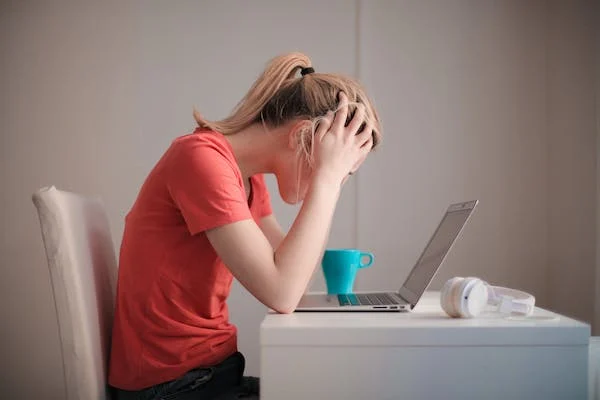
Why Are Women Experiencing More Anxiety Than Ever Before?
By: Jessica Taylor, LPC As a therapist, I am seeing an unprecedented number of women plagued with debilitating anxiety. Sometimes, it’s about something specific, like relationship issues with a partner. Other times, it’s about ALL of the things. Like the anxiety “swarm of bees” just decides what random thing it wants to hover over that day. And trust me, I get it. I was diagnosed with Generalized Anxiety Disorder (GAD) back in 2012, when I was in graduate school, studying to become a therapist. I was like: “Me? I’m fine, but if I’m studying to become a therapist, I should probably see what being in therapy actually feels like.” And then my therapist was like “You worry more than the average person. You have anxiety.” I was shook. For approximately ten seconds. And then I was like “yes, I do worry A LOT.” Since then, the intensity of my anxiety has ebbed and flowed. There have been times when it was so bad that I needed to be on medication to function. And now, it has been at a mostly manageable level for years. This is because I found the coping skills that work best for me and am very consistent in using those when I notice the warning signs (for example: irritability, a weird eye twitch, and a lack of focus) that come up when my symptoms of anxiety are starting to worsen. But enough about me! And back to women in general. While the modern world has undoubtedly brought significant progress and empowerment to women, it has also ushered in a new set of challenges and stressors that disproportionately affect them. So, let’s talk about why women are facing more anxiety than ever. Gender Expectations and Societal Pressures: Historically, women have been subjected to societal norms that demand we balance multiple roles and responsibilities. In modern times, these expectations have evolved, but they persist. Women often feel the pressure to excel in their careers, maintain their households, raise children, and support their families financially. It appears that we often base our worth on how productive, or worse, perfect we are. When you have a day where you are lacking motivation or energy, how do you feel about that? Do you allow yourself the space to take a “recharge” day? Or are you frustrated with yourself for not getting everything done on your list? Body Image and Self-Esteem: The media and advertising industries continue to propagate unrealistic standards of beauty. With the advent of social media, these unattainable beauty ideals are now constantly in women’s faces. This persistent exposure can lead to body image issues and low self-esteem, which are well-documented factors contributing to anxiety and depression. Think about it, how many times this week have you beat yourself up for something about your physical appearance? Work-Life Balance: In today’s fast-paced world, achieving a healthy work-life balance is increasingly challenging. Women often find themselves juggling the demands of a full-time job with domestic responsibilities and childcare. This struggle to balance personal and professional life can lead to burnout, stress, and anxiety. And even if you don’t have kids, balancing dating or other relationships (love, friendship, family) can feel overwhelming, in addition to working and the much-needed self-care. #MeToo Movement and Gender-Based Violence: The #MeToo movement brought to light the pervasive issue of sexual harassment and gender-based violence that women often face in various aspects of their lives, including the workplace. The increased awareness of these issues has amplified women’s concerns about their safety and well-being, leading to heightened anxiety. In my work as a therapist, I have seen women showing up with symptoms of trauma related to an assault that happened years ago. Awareness is great, but it can also bring up issues that were dormant, or that we didn’t even know were issues. Social Comparison on social media: While social media platforms provide opportunities for connection and self-expression, they also foster a culture of comparison. Women frequently compare their lives, bodies, and achievements to the seemingly perfect lives depicted by others on social media. This constant comparison can lead to feelings of inadequacy and anxiety. Think about all of the other factors we have already mentioned. Social media creates inevitable comparison, which makes us ‘should’ all over ourselves. I should be thinner. I should have a cleaner house. I should make more money. I should be traveling more. I should be farther in my career. I should be packing my kids those fancy lunches. And on and on and on. There are obviously so many other reasons that are contributing to women experiencing more anxiety than ever. I’M LOOKING AT YOU, CURRENT WORLD EVENTS! But the bottom line of all of this are these simple truths: You are not alone in your struggles with anxiety. You are not “crazy.” You are having a normal response to anxiety-provoking things. You don’t have to feel this way forever. Anxiety is super treatable. Ask for help now, you don’t have to go through this alone! Need a therapist? We offer in person and virtual sessions to anyone in Colorado and would love to help. Reach out today to get connected to the therapist that matches to you.

